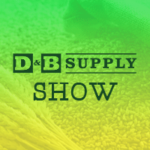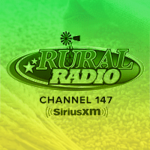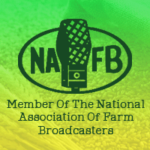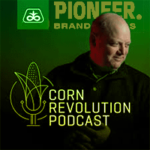Tue, 12 April 2022
Thoughts Inspired By The Book: "The Crucible Of War" Immediately following the the French and Indian War in the U.S. a recession or even a depression began to sink in, in the colonies as the British military moved out of the colonies and focused their attention on matters in the Caribbean. This left commercial farmers, the very first to ever emerge in North America, dealing with how to pay back debt with low commodity prices. This caused smaller farmers to shift from growing extra and selling it at markets to return to a basic subsistence type of farming lifestyle. This also led to more bartering with supplemental agricultural products. I found something interesting about the view of farmers when looking at the story of Thomas Rich. He was a merchant from Philadelphia. He had significant amounts of inventory that he had purchased with debt during the war because the British military was purchasing everything and the war was fueling all sorts of commerce. However, when the war ended and the economy slowed he was left with a lot of inventory that he could not sell and the debt that was going to be paid from the sale of those items. He came up with a scheme to ship this merchandise to the French in their colony of Guiana, but this was illegal as he was a subject of the British Crown, and the British had just ended a war with the French and the terms of the end of the war prohibited him from trading with the French. This plan did not work for Rich, and by 1770, when he finally paid all of his debts he was essentially bankrupt. I am listening to this book, so the tone of the author can be felt by the inflection of the reader and what he emphasizes. As the narrator finishes telling Thomas Rich’s story he say says, with some sort of disdain in his voice, that he “died raising sheep on a farm in New Jersey”. The inflection is obvious as though the fact that Thomas Rich ended his life as a farmer was a form of disgrace or shame. I found myself chuckling as I listened to this. I did not find it disgraceful or shameful that he spent his final years in a beautiful place raising livestock. I thought to myself, “he finally got it right!”. I can’t help but wonder if after all the stress and high level dealings that Thomas Rich went through in the 1700’s if he found himself tending to sheep one day and asked himself, “why haven’t I been doing this all along”. I do find it ironic that today, so many who live this high stress lifestyle in the cities are rejecting this life and opting for a simpler life in a rural environment raising livestock or growing food. It seems to me that there is a secret to living a good life that exists, and only farmers have really been able to figure it out. This has been going on since the 1700’s, and I wonder why it has taken almost 300 years for people to start realizing this. There was another part of Thomas Rich’s story that I wanted to share with you. I found myself thinking of the quip, from the book of Ecclesiastes, that states “there is nothing new under the sun” is really true when I heard this part. Thomas Rich was a “go big or go home” type of guy. He took on a lot of debt. So much so, that he never found himself in a debtor’s prison. His debtors had lent him so much money that they dared not have him arrested or foreclosed on. Their only hope in recovering what they had lent to was keep him producing and earning so that he could repay, even if that were incremental and slow. So much has not changed. His philosophy was “If you owe your banker $1,000 and you have $500 to pay him, you have a problem. If you owe your banker a million and you don’t have a nickel, he’s got a partner”. I have heard many people talk about farmers, particularly dairy farmers, with admiration in their voice, who follow this principle. This philosophy is alive and well in agriculture today, and some of the largest, and perceived to be most successful farmers, that I have heard stories about are those that owe the bank or banks so much money, that the banks would never dare to foreclose - debtors prison is no longer a thing. If they foreclosed they would get pennies on the dollar for what they have lent. They have no choice but to continue to work with the farmer and ride the cycles of agriculture in the hopes of recovering the money they have lent. It is very interesting how if you are careless with debt it can wreck you financially, but if you absolutely reckless and build an empire on debt everything changes and it can sustain you! More Places You Can Listen to Off-Farm Income And Matt Brechwald:
Direct download: OFI_1356_Tuesday_Episode_-_4622_11.08_AM.mp3
Category:farming -- posted at: 12:30am MDT |
Off-Farm Income

Categories
generalfarming
FFA
rural crime
vicuna
Agricultural Colleges
Archives
AprilMarch
February
January
December
November
October
September
August
July
June
May
April
March
February
January
December
November
October
September
August
July
June
May
April
March
February
January
December
November
October
September
August
July
June
May
April
March
February
January
December
November
October
September
August
July
June
May
April
March
February
January
December
November
October
September
August
July
June
May
April
March
February
January
December
November
October
September
August
July
June
May
April
March
February
January
December
November
October
September
August
July
June
May
April
March
February
January
December
November
October
September
August
July
June
May
April
March
February
January
December
November
October
September
August
July
June
May
April
March
February
January
December
November
| S | M | T | W | T | F | S |
|---|---|---|---|---|---|---|
| 1 | 2 | |||||
| 3 | 4 | 5 | 6 | 7 | 8 | 9 |
| 10 | 11 | 12 | 13 | 14 | 15 | 16 |
| 17 | 18 | 19 | 20 | 21 | 22 | 23 |
| 24 | 25 | 26 | 27 | 28 | 29 | 30 |
Syndication








